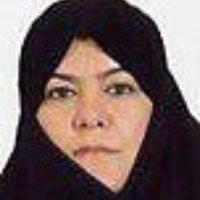The Structural Semantics of the Word “Daraba” in the Holy Quran
The word daraba is one of the most complex words in the Arabic language, which according to some of the earliest philologists is used to refer to all actions. Therefore, a precise understanding of the meanings of daraba in the Quran and finding its semantic components requires a methodological study. Structural semantics is one of the methods of Quranic studies which deals with extracting hidden meanings in a text considering a network of conceptual relations. The present study is based on syntagmatic and paradigmatic relations and seeks to discover the semantic components of daraba using the constructivist approach. An attempt has been made to explain the semantic status of daraba in the Quran through the semantic analysis of the words that are in the same semantic field as daraba and in the two syntagmatic and paradigmatic axes. The semantic components of “daraba” extracted through syntagmatic relations are: to connect, to join, to close, to leave, to turn away from, to entangle, to unfold, to surround, to change, external emergence, power and weight. The semantic components to go, to cut, to turn away from, to surround, to cover, to squeeze and to entangle were further extracted through the paradigmatic axis of “daraba”.
-
Evaluating Feminist Readings About Men's ConsistencyEmphasizing the point of view of Mohammad Hossein Fadlullah
Sohaila Ahmadi, *, Marzieh Mohases
Islamic Studies and Quranic Research in the Contemporary World, -
A Re-examination of the Revelation Occasion of the Quranic Verse al-Rijal Qawwamun (4:34) on the base of Isnad-cum-Matn Analysis Methodology
Mojgan Ahangar Davoodi *, ,
Quran and Hadith Studies, -
Etymological Approach to the Quranic term “darab”
Fathieh Fattahizadeh, *, Somayeh Taheri
Quranic Studies and Islamic Culture,



